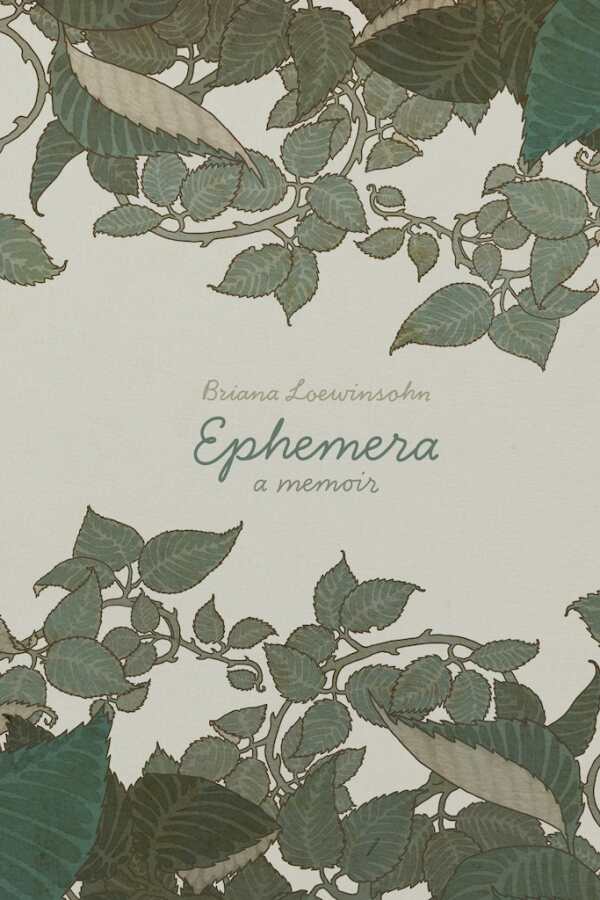Ephemera
- 2023 INDIES Winner
- Editor's Choice Prize Nonfiction
A botany-themed meditation on memory, absence, and loss, Ephemera is a beautiful graphic memoir.
Returning to her childhood home, Briana Loewinsohn seeks to restore the gardens and plants that had dried up and became overgrown. Through the process, she remembers her childhood and her mother. In a series of extended flashbacks, her mother’s strange behavior and prolonged absences are shown; in the present, Loewinsohn attempts to reconcile herself to this past.
The book seizes the opportunities for metaphors presented by trees and flowers. Its story is divided into sections titled “Dirt,” “Water,” and “Light,” referring both to the garden’s restoration and to Loewinsohn’s process of regrowth. The text is spare and minimalist, emphasizing the importance of each word. Loewinsohn’s mother’s apparent mental illness is revealed a little at a time, the way a child would experience it; when Loewinsohn offers her a ragged bouquet of flowers, her mother’s terse response is devastating: “You’re making it worse.”
The art carries the weight of the story, with gorgeous, detailed renderings of plants and flowers and effective drawings of people whose faces express complicated mixtures of emotions. Loewinsohn’s deep love and appreciation for her mother is clear alongside her pain and confusion. In an affecting scene, she enters her absent mother’s bedroom and tries on her slippers.
The book benefits from the added dimension of texture: the grain of paper is visible on every page, resulting in warmth and intimacy. Colors shift between an array of greens in Loewinsohn’s rich but troubled childhood and a hazy orange that dominates her reflective adulthood. When an image of grown Loewinsohn is at last infused with shades of green, it’s a powerful statement of reconciliation and peace.
Ephemera is a moving memoir about confronting childhood memories that are viewed through botanical themes and touchstones.
Reviewed by
Peter Dabbene
Disclosure: This article is not an endorsement, but a review. The publisher of this book provided free copies of the book to have their book reviewed by a professional reviewer. No fee was paid by the publisher for this review. Foreword Reviews only recommends books that we love. Foreword Magazine, Inc. is disclosing this in accordance with the Federal Trade Commission’s 16 CFR, Part 255.

